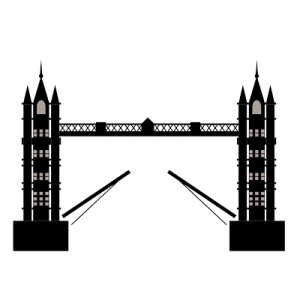Hi,
Does anyone know if international students can gain funding/scholarships for the JD generally?
I've contacted one law school, they say foreign students cant get federal aid (not surprising) but also that foreign students are not eligible for a scholarship (very surprising). Has anyone else found this to be the situation also? Or could this be the particular school I have contacted?
Thanks for your time,
Lauren x
JD Funding
Posted May 08, 2007 20:02
Does anyone know if international students can gain funding/scholarships for the JD generally?
I've contacted one law school, they say foreign students cant get federal aid (not surprising) but also that foreign students are not eligible for a scholarship (very surprising). Has anyone else found this to be the situation also? Or could this be the particular school I have contacted?
Thanks for your time,
Lauren x
Posted Nov 01, 2007 02:39
Yes, they gave you accurate advice. There is not much "free" money for foreign graduates. To learn about why this is so, you can see if law schools in your own country would grant scholarships to foreigners. Why would a school give free education to a foreign person when there are many in the U.S. that need financial aid?
Posted Nov 01, 2007 15:26
Might it not depend upon if you apply as a transfer student or not? If you don't apply as a transfer student, and your LSAT rocks, then I would assume they would pay you money on equal grounds as a domestic applicant (I know this has in fact happened to foreigners). Transfer students on the other hand probably wont get the benefit of this, as the school doesn't report the LSAT score, so there would be no incentive to pay you money to come to their school. Not being a transfer student also means you will probably have to complete the full 3 years, which is probably a pain in the ...
Posted Dec 30, 2008 16:52
Is it really so that there is little funding for international students? Even at the top schools?
In answer to the question raised above, I would like to think that British universities would give scholarships to those from foreign nations (as much as they largely don't). As this would allow some of the best students worldwide to graduate, rather than hanging on to misguided nationalism. Of course, lack of sources of funding is a very real problem, however. But with privately-funded (all British universities, aside from a few very small insignificant ones, are funded by the state) Ivy Leagues, the problem should by no means be insurmountable.
In answer to the question raised above, I would like to think that British universities would give scholarships to those from foreign nations (as much as they largely don't). As this would allow some of the best students worldwide to graduate, rather than hanging on to misguided nationalism. Of course, lack of sources of funding is a very real problem, however. But with privately-funded (all British universities, aside from a few very small insignificant ones, are funded by the state) Ivy Leagues, the problem should by no means be insurmountable.
Hot Discussions
-
Stanford 2024-2025
Nov 07, 2024 35,068 117 -
NUS LLM 2024-25 Cohort
Oct 25, 2024 5,858 34 -
MIDS - 2024-25
Nov 15, 2024 1,837 16 -
Indian Tribes as US Jurisdictions of law attorney admission?
Nov 08, 2024 765 6 -
Warwick or Birmingham
Nov 10, 2024 1,163 5 -
NUS LLM cohort 2025/26
Nov 17 05:40 PM 472 5 -
LL.M. Scholarship Rates?
Nov 09, 2024 2,503 5 -
Scholarship Negotiation Strategy (BCL v. NYU LLM Dean's Graduate Scholarship)
Nov 09, 2024 1,041 4



